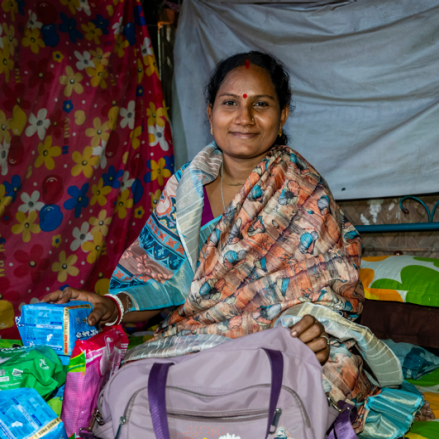What if talking about menstrual health wasn't a taboo— but a path to purpose, profit, and public health?
In rural communities across Bangladesh, dedicated champions like Rita Majumder are quietly driving change. A mother and teacher from Shilua, Rita is now also a menstrual hygiene entrepeneur. With limited household income, she needed a way to support her family. But her decision to sell sanitary napkins wasn't only about earning money.
After attending an entrepeneurship training offered by a local partner under a World Bank-financed project, Rita was inspired by what she learned about menstrual health— and determined to make a difference for women who feel too shy or ashamed to purchase these products publicly.
Using her skills as a teacher and her new knowledge, Rita began organizing school sessions, community meetings, and home visits to educate women and girls. She now sells up to 150 packets per month, carefully selecting brands that balance affordability and quality based on community needs. “Despite having the money, many women still don’t use sanitary napkins because they lack information,” Rita explains.





